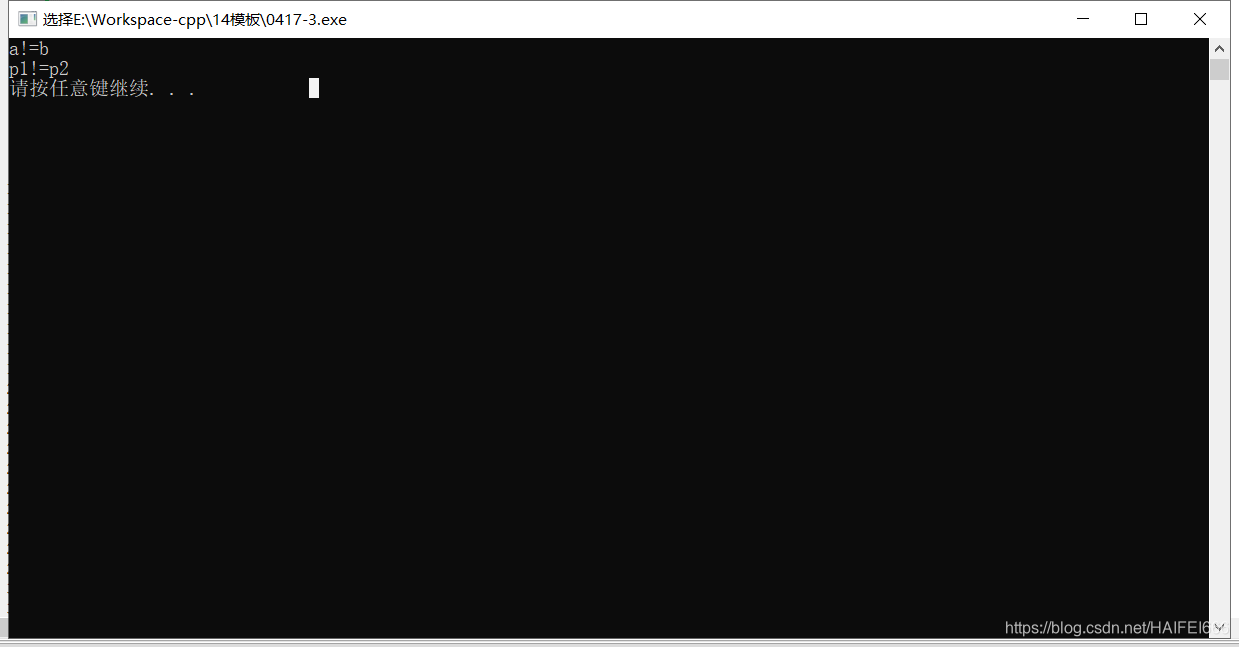#include<iostream>
#include<stdlib.h>
#include<string>
using namespace std;
/*
1.2.6模板的局限性
模板的通用性并不是万能的
*/
// ******************************************
template<class T>
bool my_compare(T & a, T & b){
if(a == b){
return true;
}else{
return false;
}
}
void test(){
int a = 10;
int b = 20;
bool result = my_compare(a, b);
if(result){
cout << "a==b" << endl;
}else{
cout << "a!=b" << endl;
}
}
// ******************************************
/*
// ******************************************
class Person{
public:
string name;
int age;
Person(string name, int age){
this->name = name;
this->age = age;
}
};
void test_2(){
Person p1("Tom", 10);
Person p2("Tom", 10);
if(my_compare(p1, p2)){ // 报错,无法直接用==比较对象p
cout << "p1==p2" << endl;
}else{
cout << "p1!=p2"<< endl;
}
}
// ******************************************
// 解决方法1:之前学的运算符重载,重载==
// 解决方法2:具体化
*/
// ******************************************
class Person{
public:
string name;
int age;
Person(string name, int age){
this->name = name;
this->age = age;
}
};
// 利用具体化Person的版本实现代码,具体化优先调用
template<> bool my_compare(Person & a, Person & b){
if(a.name == b.name && a.age == b.age){
return true;
}else{
return false;
}
}
void test_2(){
Person p1("Tom", 10);
Person p2("Tom", 11);
if(my_compare(p1, p2)){ // OK
cout << "p1==p2" << endl;
}else{
cout << "p1!=p2"<< endl;
}
}
// ******************************************
int main(){
test();
test_2();
//利用具体化的模板,可以解决自定义类型的通用化
//学习模板并不是为了写模板,而是在STL能够运用系统提供的模板
system("pause");
return 0;
}




 浙公网安备 33010602011771号
浙公网安备 33010602011771号